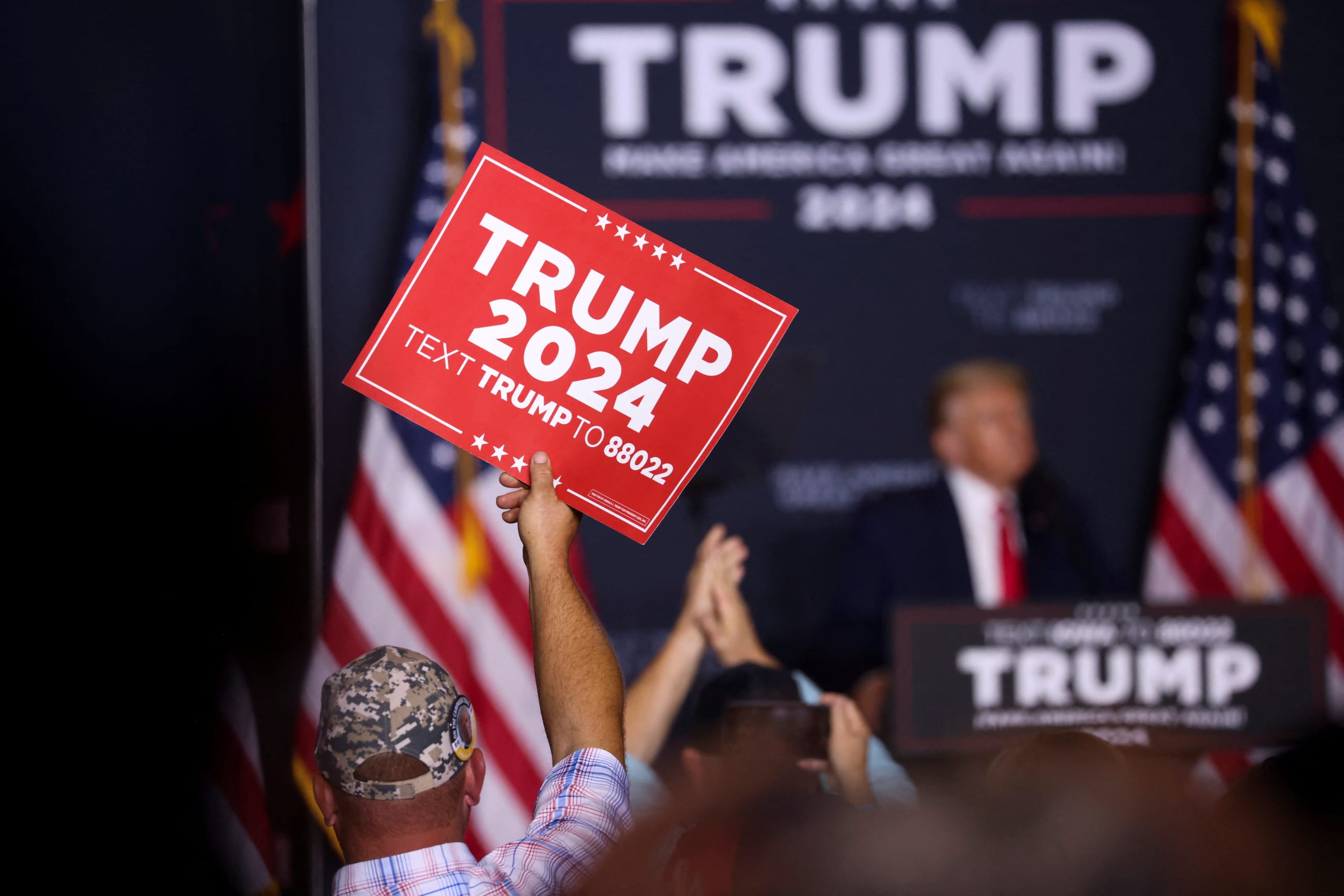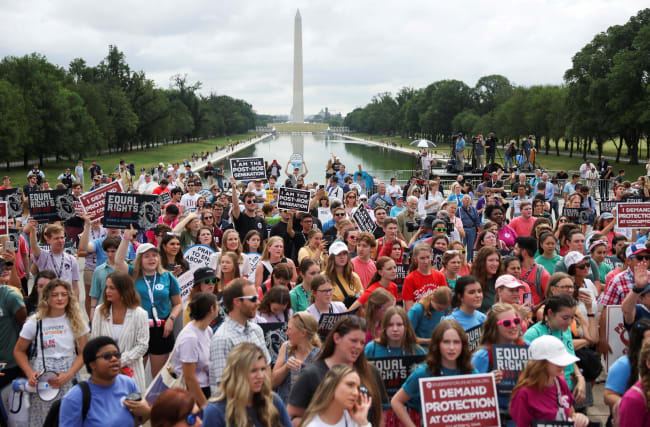In April, the Heritage Foundation published Mandate for Leadership 2025: The Conservative Promise. The document forms part of the 2025 Presidential Transition Project, an effort to prepare the "next conservative Administration to govern." Its thirty chapters from "more than 400 scholars and policy experts" make "recommendations for White House offices, Cabinet departments, Congress, and agencies, commissions, and boards."
Among other issues, The Conservative Promise addresses global health, mainly in the chapters on the State Department, U.S. Agency for International Development (USAID), and Department of Health and Human Services (HHS). Its perspective on global health policy is important to understand. It informs the abortion-related controversy about reauthorizing the President's Emergency Plan for AIDS Relief (PEPFAR), influences Republican politicians' campaigns for the 2024 election, and will—if a Republican is elected president next year—shape that administration's foreign policy on global health.
The Conservative Foreign Policy Promise
The Conservative Promise crafts a strategy to "defend our nation's sovereignty, borders, and bounty against global threats." Fulfilling that promise requires dismantling the "Administrative State" that violates the Constitution, empowers elites over elected officials and voters, supports policies that embolden China, facilitates "woke extremism" in diplomacy (for example, on abortion and climate change), and embraces "supra-national treaties and organizations."
Its perspective on global health policy is important to understand
The strategy identifies China as a "totalitarian enemy of the United States." Economic engagement with China should end. The United States should pursue "full-spectrum energy dominance" through its "vast reserves of oil and natural gas" to counter Chinese ambitions, reinvigorate U.S. industry and manufacturing, "rebalance power away from dangerous regimes in Russia and the Middle East," and build "alliances with fast-growing nations in Africa."
Global health is not a strategic priority in the conservative foreign policy vision. The Conservative Promise often portrays global health as rife with elitism, woke policies, and treaties and international organizations that threaten U.S. sovereignty. Conservative policy mitigation of those crosscutting vices would change U.S. global health involvement. The plan to exploit fossil fuel reserves to counter China, bolster U.S. power, and stimulate economic growth rejects the claims that climate change threatens U.S. security, economic well-being, and health.
The State Department
The Conservative Promise's chapter on the State Department emphasizes the need for the department to change its approach to immigration, respond to China's challenge, counter threats from other adversaries (for example, Iran and Russia), reengage with important regions (including sub-Saharan Africa), and defend U.S. interests in the Arctic.

The chapter addresses issues relevant to global health. It warns that, under the Joe Biden administration, the State Department is negotiating "sovereignty-eroding agreements" that the next conservative president should oppose—a recommendation that could affect negotiations at the World Health Organization (WHO) on a pandemic accord. The chapter recommends that the United States should oppose actions of—and, if necessary, withdraw from—international organizations that act against U.S. interests.
The chapter identifies the WHO's "failure and corruption" during the COVID-19 pandemic to illustrate the "danger that international organizations pose to U.S. citizens and interests." It asserts that such organizations "trample human rights in the name of public health" and that the WHO supports "the suppression of basic human rights, partially because of its close relationship with human rights abusers like the PRC." The chapter recommends that foreign policy support the primacy that the U.S. Commission on Unalienable Rights convened by the Donald Trump administration gave to civil and political rights.
The chapter's section on sub-Saharan Africa—where the United States has spent billions in global health aid—notes that, as "Africa's strategic significance has grown, the U.S.'s relative influence there has declined" and that "America's competitors are making significant gains." It recommends that the United States reorient its foreign assistance "away from stand-alone development aid and toward fostering free market systems in African countries."
It asserts that such organizations [like the WHO] "trample human rights in the name of public health"
The chapter on the State Department also identifies the threat of fentanyl trafficking and recommends that the department work with countries in the Western Hemisphere to "halt the fentanyl crisis and put a decisive end to this unprecedented public health threat."
U.S. Agency for International Development
The chapter on USAID emphasizes that the agency needs to better align foreign assistance with U.S. foreign policy goals by, as a priority, countering the challenge posed by China's development agenda. The chapter argues that the United States should end "its war on fossil fuels in the developing world" and rescind "all climate policies from its foreign aid programs," except limited aid for "traditional climate mitigation efforts" and strengthening the "resilience of countries that are most vulnerable to climatic shifts."
The chapter recommends ending USAID's diversity, equity, and inclusion agenda and focusing the agency on protecting women, children, and families. That shift would involve "protecting life in foreign assistance" by reapplying the Trump administration's Protecting Life in Global Health Assistance policy and expanding it to all foreign aid. That change would prevent U.S. foreign assistance from indirectly supporting the "global abortion industry." The chapter also recommends ensuring that the WHO and other international organizations remove "language promoting abortion" from "documents, policy statements, and technical literature."

The USAID chapter acknowledges that U.S. global health assistance has saved millions of lives. The chapter identifies reforms to improve the impact of such aid. For example, it emphasizes the need to channel more aid through local entities in recipient countries, including faith-based groups, rather than using the "aid industrial complex" of international institutions, nongovernmental organizations, and corporations. It highlights how PEPFAR has demonstrated that "localization at scale is possible" and should be a model across USAID. The chapter also recommends transitioning PEPFAR and the President's Malaria Initiative into an "integrated, strong, and sustainable network of health care and public health in developing countries."
However, the chapter notes that, despite billions of U.S. global health and other aid spent in Africa, the "continent remains poor, unstable, riven with conflict, corruption, and Islamic terrorism." It recommends a new USAID strategy for Africa that "promotes economic self-reliance, catalyzes private-sector solutions for job creation through trade and investment, terminates legacy and nonperforming programs, and supports diversified energy approaches."
In terms of humanitarian assistance, the chapter laments that U.S. aid is "sustaining war economies, creating financial incentives for warring parties to continue fighting, discouraging governments from reforming, and propping up malign regimes." It recommends "exit strategies that term-limit the duration of humanitarian responses and transition funding from emergency to development projects."
PEPFAR has demonstrated that "localization at scale is possible" and should be a model across USAID
The Conservative Promise
Department of Health and Human Services
The chapter on HHS focuses predominantly on domestic issues because the department's activities affect "more Americans than those of any other federal agency." For example, the chapter discusses the need for the United States to be prepared for the next health emergency given that, during the COVID-19 pandemic, the "federal government's public health apparatus has lost the public's trust."
The chapter criticizes, and recommends reforms for, the Centers for Disease Control and Prevention, the National Institutes of Health, Food and Drug Administration, and other parts of HHS. Those reforms include preventing the "regulatory capture of our public health agencies" by private-sector actors, including pharmaceutical companies by, for example, ending the "revolving door between government and Big Pharma."
However, the chapter, including the section on the Office of Global Affairs (OGA), does not discuss the international aspects of pandemic preparedness and response—a topic also missing in the State Department and USAID chapters. The OGA recommendations highlight the office's role in implementing a conservative administration's "pro-life and pro-family priorities in all international engagements." Those recommendations reinforce the chapter's emphasis on the imperative for HHS to "protect the fundamental right to life, protect conscience rights, and uphold bodily integrity rooted in biological realities, not ideology."
The plan to increase fossil fuel use constitutes a breathtaking risk for global health
Caveat Emptor
My description of global health aspects of The Conservative Promise should be read with a grain of salt. At nearly 900 pages, that presidential transition strategy's scope, complexity, and detail counsel against trusting potted summaries. Further, thin consideration of some issues—such as the international aspects of pandemic preparedness and response—does not mean that conservatives lack ideas about them. Even so, teasing out threads in the document provides information about a conservative perspective developed as U.S. global health policy faces unprecedented challenges.
Whatever one might think about that perspective, it is consequential. The demand that the reauthorization of PEPFAR ban funding organizations that provide abortion-related activities, even with non-U.S. funding, aligns with recommendations made in The Conservative Promise. Federal courts have ruled in favor of conservative claims that U.S. public health agencies likely violated freedom of speech in communicating with social media companies during the pandemic. Republican politicians are attacking policies implemented against COVID-19, such as mask and vaccine mandates, in seeking support for the 2024 election. The plan to increase fossil fuel use constitutes a breathtaking risk for global health.
Whether the conservative vision transforms U.S. global health policy depends on decisions Congress, the federal judiciary, and the American people will make between now and November 2024. Whichever way those decisions go, they are unlikely to restore the bipartisanship that once characterized U.S. global health engagement.













